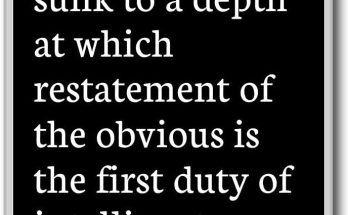By Habeeb Adisa
The new normal of agitation by citizens is done mostly on the internet ( online/ digital activism), whereby social media users channel their efforts against oppressors (governmental or non-governmental). ‘Internet warriors’ as they have been described are perceived to be agents of both governmental and non-governmental organizations, political parties, and individuals. It has mostly been alleged that for every publicity of any trend on the social media space there is an agenda.
The #endsars protest was a movement majorly by the youths, in a decentralized setting to protest, agitate against police brutality in Nigeria. The Special Anti- Robbery Squad (SARS), has been alleged of perpetuation of many crimes, it was established to control and manage. The protest takes it name from a slogan which started in 2017 as a Twitter campaign using the hash tag #Endsars to demand the outright disbandment of that unit of NPF (Nigeria Police Force). In 2020, it became widespread based on revelations of abuses, by that unit of the force i.e extra judicial killings, unwarranted search, professional stealing and robbery amidst other atrocities.
Solidarity protests then emerged in Nigeria, from Lagos, Ogun, Ibadan, Benin and across states in the country. Activities such as road blockages, demonstrations in government offices, mostly by the youths who felt endangered by this unit of the force. Along physical protests comes the online protests majorly on platforms like Twitter, Instagram, Facebook and the like.
The agitations continued in a peaceful manner in major places for days and got the attention of both the Nigerians in Diaspora and sympathizers around the world. Within few days the Federal Government responded by dissolving the unit with immediate effects on 11th of October 2020. Moreover, despite such huge announcement the citizens continued the physical agitations throughout the country, the reason being that in the recent years the government had made such announcement of disbanding and reform of the same unit of the force without any effective change. For instance, the Amnesty international accused the SARS officials of regularly detaining young male Nigerians illegal and extorting money from their relatives, Segun Awosanya (segalink)started the ENDSARS campaign on twitter prompting police authority to announce reform of the police unit, but was all void as such occurrences continued till recent times.On Sunday 3, October 2020, a video showing a SARS official shooting a young Nigerian in front of Wetland Hotel, Ughelli Delta state spread like wild fire on the internet, and many more of such testimonies of police brutality made wave on the internet within this time frame.
The protest: what went wrong?
The decentralized nature of the protest made it last for days and encouraged it spread both online and offline. We saw solidarity, trust, honesty and care among the youths at the early days of the protest. Moreover, this was also a disadvantage, as the demonstrators probably did not take cognizant of it. The lack of a definite leader left a vacuum on how to strategize the waves of the protest, for instance many protest venues became party houses, food centers as many individuals only wanted to satisfy their stomach infrastructure rather than the main course of the protest in the first place.
The protest was carried out in a very dividing manner along some lines which are not really encompassing. As the ENDSARS protests continued, it snowballed into calling for good governance, accountability of political office holders and went beyond just the demand for justice and dissolving of that unit of the police force. The division then came in when the popular slang of the period crept in at the middle of the protest “sóró soké,” a Yoruba catch-phrase which means “speak up.” The origin of this being that the older generation had been too quiet on national issues and it part of the problem the country face till that moment.
This was a naked division which was unnecessary to making changes in the society, and to take note the division was not age or generation oriented only, the believe that most of those protesters were actually mischievous in their dealings. As the protest took days on, blockages of major roads caused downturn to day to day economic activities, which alienated certain groups of the society which was supposed to be embedded in the fight against bad governance ( the daily earners, the garage boys, uneducated Nigerians) these groups later saw this activities as negative to their livelihood.
There are allegations that some political elements instigated hoodlums against the peaceful protesters; it very possible this set of people has been alienated from the protest from the onset and with some activities of the protesters they are affected negatively, at the little stipends to disrupt protest they will do anything.
The sóró soké generation then started hurling insults to the older generation both online and offline, forgetting to learn from history. The older generation had at one point of their youthful age used their voices against bad governance in Nigeria, for example: the “wet é” incident in Ibadan during Akintola’s tenure as the premier of the Western Nigeria,Women in the Eastern region of colonial Nigeria stood their grounds and kicked against the intolerable tax levy imposed by the colonial government. This was between 1925-1930.
The SAP Riots of 1989, the infamous “Ali Must Go” crisis that rocked the country in 1978. The slogan “Ali Must Go” was adopted against the then Federal Commissioner of Education Col. Ahmadu Ali during the General Olusegun Obasanjo military regime. Let’s not forget that scores of students lost their lives during the protest that started when the Federal Government increased the meal ticket of students in tertiary institutions from 50 Kobo to 1.50 Kobo and then to N2.00.
The June 12 protests against the Military regime of General Sani Abacha had scores of people killed; students inclusive. The journey for a better Nigeria it seems would be forged through the series of agitations. A lot of the people who were part of protests in the 70s, 80s, and 90s are probably in their 50s and 60s by now.
If the older generation had done all the listed above in the past, was it not better to have incoperated them in the new wave, to fight against bad governance as one?



